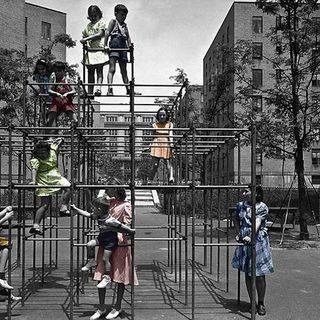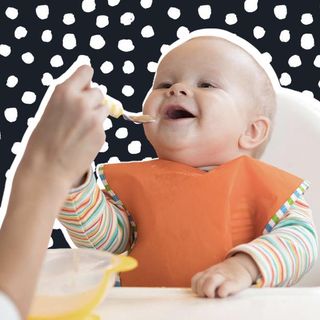All parents know: you give a baby a toy — or a bit of rubbish, they’re not picky — and the first place it goes is to their mouth. It keeps parents on their toes, but it also keeps things on babies’ lips — which are the most sensitive parts of their body. Feeling sensations on their lips is the first way babies’ brains begin to recognize their own bodies and kicks off a slew of developmental milestones.
This is the conclusion of researchers at the University of Washington Institute for Learning and Brain Sciences (I-LABS), who studied 25 2-month-olds to discern how babies develop a sense of their own bodies — a cognitive ability known as a “neural body map.” The babies wore caps that registered their brains’ electrical signals while researchers used a wand to lightly tap the babies’ left foot, hand and middle of the upper lip.
The researchers found that even at such a young age, babies showed a well-formed body map, displaying brain signals unique to each body part touched. For instance, when touched on the foot, the top of the baby’s brain shows activity; when touched on the hand, the lateral part of the brain on the opposite side of the touch shows activity. The highest spike in brain activity came when researchers touched the baby’s lip.
Scientists have long known touch plays an important role in babies’ development. A 2010 study involving preterm babies who received 15 minutes of body and limb stroking thrice a day found they had a 47% greater daily weight gain than preterm babies who didn’t receive such touch.
Now researchers know more about the significance of different kinds of touch. Researchers attribute the neural sensitivity to lip-touch to the fact that babies use their mouths to suck, feed and communicate — more actions than they can typically use any other body part for at two months of age.
“Lips are important for babies,” says lead author Andrew Meltzoff, a psychology professor and co-director of I-LABS. “They use lips for sucking, but lips are also used to articulate speech sounds and to communicate emotions — a pout versus a smile. Young babies are lip experts, and their brains reflect this.”




